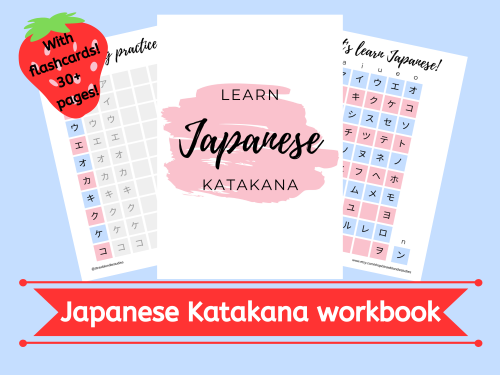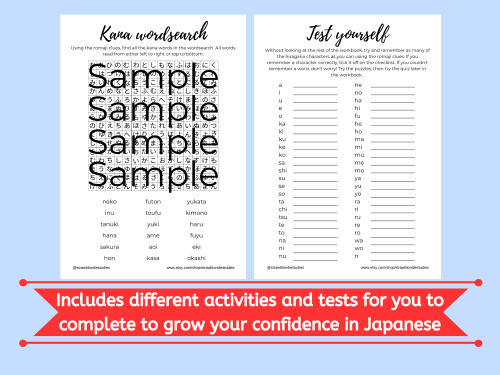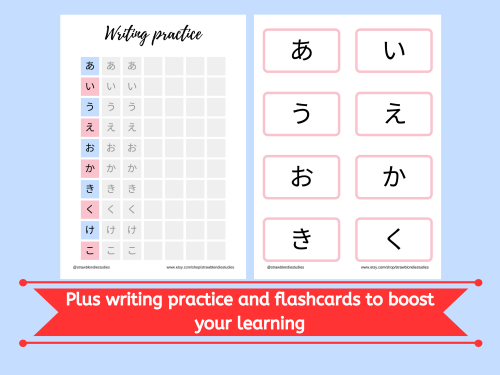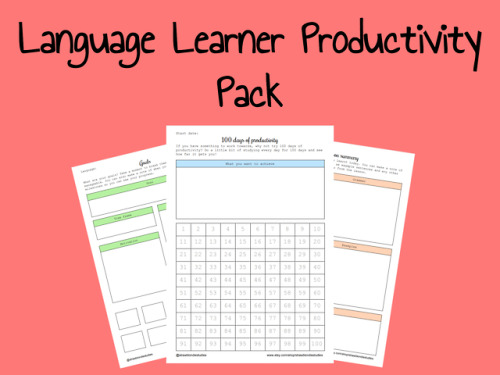#polyglot
Let’s talk about Russian culture. We’ll touch upon various aspects like cinema, literature, music, etc.
2016 is the year of Russian cinema in Russia. To be honest, Russian film industry leaves a lot to de desired. Money is rarely allocated to those who really deserve it. However, there are many indie directors who make authentic masterpieces and are celebrated at international film festivals. Andrey Zvyagintsev here is one of those. Extremely talented writer and director films movies that get the best reviews and awards in Cannes and Venice. Be sure to watch the movies listed on the picture. To give yourself a clear picture about the director’s style you may start with his latest chef d'oeuvre Leviathan.
Message us your impressions!
Post link
A lot of foreign names are a bit…clunky when transliterated into Chinese. For example:
- 莱昂纳多·迪卡普里奥 lái’ángnàduō·díkǎpǔlǐ’ào = Leonardo DiCaprio
- 埃米纳姆 āimǐnàmǔ = Eminem
- 泰勒·斯威夫特 tàilè·sīwēifūtè = Taylor Swift
I’m not going to dive into why—that’s a whole other post. But some of these transliterated names are seriously hard for me to say! And it seems like Chinese fans agree, because they have shorter nicknames for some foreign celebs.
The three celebs I mentioned above each have nicknames. I actually encountered all three nicknames while watching Chinese TV shows recently! So I can confirm that they are really used. Can you tell who is who?
- 小李子 xiǎolǐzǐ
- 阿姆 āmǔ
- 霉霉 méiméi
But where did these nicknames come from? What do they mean?
Leonardo DiCaprio / 小李子
The transliteration above starts with 莱 (lái), but transliterations are not universal. According to what I found online, 李奥纳多 is an alternative transliteration of Leonardo. As an American English speaker, I think this sounds closer to how I say Leonardo. So the nickname 小李子 likely comes from 李奥纳多. 小李子 is certainly much easier to say than 莱昂纳多·迪卡普里奥.
Eminem / 阿姆
Interestingly, even though the simplified Chinese Wikipedia page for Eminem is titled 埃米纳姆, the body text uses both 埃米纳姆 and 阿姆. But the traditional version only uses 阿姆. The Baidu page only uses 埃米纳姆. 阿姆 is not only shorter and easier to say, but 阿+syllable is a known nickname structure, so my guess is that’s where 阿姆 came from.
Taylor Swift / 霉霉
According to these 百度知道 comments, Taylor Swift is called 霉霉 because 1) 霉 sounds like 美 and 2) she used to be unlucky when it came to charting on Billboard (霉 in this case as in 倒霉, to have bad luck/be out of luck). I would have guessed it was because she had bad luck in finding love honestly! You’ll have to decided for yourself which origin story you believe.

Lately I’ve been really interested in words that consist of two opposites smashed together, especially those used to mean “A and/or B.” I’m highlighting five of these words that I’ve encountered a lot.
生死 shēngsǐ - life or death
我当时知道生死就是一瞬间的事情。
去留 qùliú - going or staying
投票结果会决定选手的去留。
成败 chéngbài - success or failure
这项计划的成败取决于你。
真伪 zhēnwěi - true or bogus / authenticity
在缺乏知识经验的情况下,普通人应该如何分辨信息的真伪?
输赢 shūyíng - win or loss / outcome
我并不在意这场比赛的输赢。
Aren’t these words neat? I can’t wait to add more to my vocabulary!
The past couple years I’ve been taking efforts to expose myself to traditional characters. But after 12+ years of primarily being exposed to simplified characters, the adjustment process is difficult. Let’s look at some characters that have made my life a bit more frustrating or that I’m thankful I never had to handwrite in Chinese classes!

NOTE: My intention with this post is not to disrespect traditional characters. Sometimes I find that traditional characters are more beautiful! And even though I use simplified characters, I have family members who use traditional. My goal is simply to poke fun at myself and my struggles :-)
丰 / 豐 - This traditional character probably isn’t that hard to write, but I know from writing 幽默的幽 that I am not good at writing characters where there are elements inside the 山 component.
边 / 邊 - I was explaining the difference between simplified and traditional characters to someone. They asked me if I could write any traditional characters. I said that I probably could. I decided to try writing 邊. I soon realized I had literally no idea how to write it. 邊 and I are enemies now.
龟 / 龜 - I know a lot of people love this traditional character, but I butchered it so badly when my Chinese teacher made try to write it on the whiteboard. It haunts me to this day. I thought I understood strokes and stroke order well, but I look at 龜 and have no idea what is going on.
忧郁 / 憂鬱 - This doesn’t need an explanation. Writing 憂鬱 will make you 非常忧郁.
体 / 體 - This is a pretty common character, so I am very thankful I can get away with 体 instead of 體. My 骨s already don’t look great. A very thin 骨 would come out much worse.
铁 / 鐵 - In general I don’t like writing characters like 裁, 截, 戴, etc. because I am simply not good at getting the balance right. And the fact that the right side of 鐵 is so compressed/skinny is really just a recipe for disaster.
冲击 / 衝擊 - 6+5 strokes to 15+17 strokes? No way.
昼 / 晝 & 画 / 畫 & 书 / 書 & 划 / 劃 - I mentioned the first three of these in a recent post. I can’t really tell any of the traditional characters apart unless I put on my glasses and hold my face like an inch away from my laptop screen. 劃 is obviously more visually distinct, but I felt it should be grouped with its siblings. 10/10 not a fan.
为 / 為 / 爲 - 为 is so common—I really can’t imagine having to write so. many. strokes. every time I write 因为 or 为了 or whatever.
聋 / 聾 - Just 龙 to 龍 is already a lot. 龍 stacked on top of something else? I would not be able to cope. Poor 耳 will get squished down there!
断 / 斷 & 继 / 繼 - Too many 幺s. Yes, I know 幺 is very simple and only 3 strokes, but I can never manage to write it well! I get the angles wrong, of which I am very ashamed.
艺 / 藝 - I don’t know how to explain it…I just feel like 艺 and 藝 give off really different vibes, you know? So while I don’t have any trouble recognizing 藝 and associating it with 艺, something just feels off.
归 / 歸 - I have noticed that I don’t look how characters that can be divided into a 2x2 grid look, like 毁 for instance. So even though I actually don’t like writing 归 (t also comes out ugly and unbalanced), I don’t like 歸 either.
惊 / 驚 - I am incapable of writing 警 neatly so I just know I would not be able to make 驚 look nice.
飞 / 飛 - This one is not that complicated honestly, but just looking at it, I know 飛 would look so ugly if I tried to write it. I don’t even need to try.
听 / 聽 - I’m sure there is a sensible reason the two forms look so different, but I remember being so bewildering by this pair back in high school. So I’m going back to my roots by including 聽 here.
职识织 / 職識織 - Honestly I don’t think these characters are that bad, but I am incapable of recognizing the traditional versions no matter how often I see them. I really don’t know why. Every time I see them, I feel like I’ve never seen them before in my life.
几 / 幾 &机 / 機 - I remember these were the bane of my existence when I first began familiarizing myself with more traditional characters. I just could not associate 幾 with 几. Also the traditional characters have the 幺 and 戈 elements that we’ve already established I suck at writing.
灵 / 靈 - 3 little 口s in a row is too many for me. It’s good to know your limit, and this is mine.
钥 / 鑰 - This one bugs me because I think the right is the same as the right element of 輪, 論, and 倫 but it’s actually subtly different! And 3 little 口s in a row again!
艳 / 艶豔艷 - As you can see, this character has multiple traditional variants. I don’t think I have ever actually seen the middle one used, but regardless, I’m thankful that I do not have this character in my Chinese name.
卫 / 衛 - This is another traditional character that I hold a grudge against because I am simply incapable of remembering that 衛 is 卫. I think it’s because 衛 makes me think of 伟/偉, and 伟 obviously doesn’t look like 卫, so I can’t make the connection.
党 / 黨 - I know there is simply no way I could write this and have it fit in a square. It would come out like double the height it’s supposed to be. I can’t write 墨 well for my life either.
盐 / 鹽 - There’s a lovely song by 沈以诚 with this character as the title. It took me so long to realize what the title was because 鹽 displays so tiny on my computer that I couldn’t see the detail well enough to draw the character in Pleco!
单 / 單 - I am okay with 2 口s in a row, and I don’t mind 骂 for instance. But for some reason when I look at 單, it feels like the 口s are going to squish the bottom part!
Bonus: I thought it would only be fair to mention some simplified characters that I am not a fan of. My top pick is this group:
头 / 頭
实 / 實
买 / 買
卖 / 賣
读 / 讀
续 / 續
Whenever I write 头, it honestly looks so bad and unbalanced. I would prefer that the simplified versions of these characters be more faithful to the traditional versions just so I wouldn’t have to look at my ugly 头s!
Over my years of studying Chinese, I’ve encountered many familiar characters in unfamiliar situations. Basically, when I originally learned a character, I only learned one or some of its possible meanings. Then later down the line, I encountered the same character but with a meaning that I hadn’t learned. Confusion ensued. Then I pulled up Pleco or MDBG, and all became clear!
Let’s go down memory lane and look at some of the characters that have perplexed me over the years.
同款 tóngkuǎn - similar (model) / merchandise similar to that used by a celebrity etc
Recently I’ve seen a lot of ads with the word 同款. I was quite confused because I thought 款 had to do with money, like in 贷款 or 捐款. After looking up 款, everything made sense—the ads I saw were advertising a service where you can buy clothing that your favorite celebs wear!
款 kuǎn - section / paragraph / funds / classifier for versions or models (of a product)
疼惜 téngxī - to cherish / to dote on
疼爱 téngài - to love dearly
Before encountering these words, I was only familiar with 疼 from words like 头疼 and 疼痛, which have to do with pain. So you can imagine my confusion when I saw “cherish” as the definition for 疼惜! I find it interesting how this character has both a very positive and a very negative meaning.
疼 téng - (it) hurts / sore / to love dearly
告别 gàobié - to leave / to bid farewell to / to say good-bye to
离别 líbié - to leave (on a long journey) / to part from sb
I knew a lot of words with 别, but none with the meaning of leave/depart…even though that is the first definition listed in MDBG! Even to this day, when I see the expression 别来无恙, it takes me a sec to remember what 别 means in there.
别 bié - to leave / to depart / to separate / to distinguish / to classify / other / another / don’t …! / to pin / to stick (sth) in / (noun suffix) category
发毛 fāmáo - to be scared / to be panicked
I heard this use of 毛 while watching Chinese-language TV. I instantly looked up 毛 in Pleco because the meanings of 毛 I knew made no sense in the contexts of the scene. I’ve been able to remember this new (to me) meaning of 毛 thanks to the chengyu 毛骨悚然.
毛 máo - hair / feather / down / wool / mildew / mold / coarse or semifinished / young / raw / careless / unthinking / nervous / scared / (of currency) to devalue or depreciate / classifier for Chinese fractional monetary unit
说道 shuōdào - to state / to say (the quoted words)
问道 wèndào - to ask the way / to ask
I was so bewildered when I first saw 道 used like this—even though I knew many, many words with 道 that were diverse in meaning. Now I see this kind of 道 a lot when I’m reading, so I’m confident that you will encounter it sooner or later.
道 dào - road / path / principle / truth / morality / reason / skill / method / Dao (of Daoism) / to say / to speak / to talk / classifier for long thin things (rivers, cracks etc), barriers (walls, doors etc), questions (in an exam etc), commands, courses in a meal, steps in a process / (old) circuit (administrative division)
花光 huāguāng - to spend all one’s money
不光 bùguāng - not the only one / not only
Here there are two new meanings of 光 that I remember learning. For the “use up” meaning, 花光, 用光, and 吃光 seem to be the most common uses. As for the “only" meaning, I hear 不光 all the time now. It’s definitely super useful to know.
光 guāng - light / ray / bright / only / merely / to use up
理睬 lǐcǎi - to heed / to pay attention to
不理 bùlǐ - to refuse to acknowledge / to pay no attention to / to take no notice of / to ignore
理 is another character that I encounter constantly in words like 理解, 理由, and 处理. I think I first learned the “to pay attention to” meaning from the chengyu 不理不睬. Now I encounter and use 不理 really frequently!
理 lǐ - texture / grain (of wood) / inner essence / intrinsic order / reason / logic / truth / science / natural science (esp. physics) / to manage / to pay attention to / to run (affairs) / to handle / to put in order / to tidy up
顽皮 wánpí - naughty
调皮 tiáopí - naughty / mischievous / unruly
Here is another example of “what? How did this character acquire both these definitions?” At least I have not had much trouble with remembering this meaning of 皮. I think I learned 顽皮 first, but I feel like I hear 调皮 more.
皮 pí - leather / skin / fur / CL: 張|张 / pico- (one trillionth) / naughty
往事 wǎngshì - past events / former happenings
过往 guòwǎng - to come and go / to have friendly relations with / in the past / previous
过往 is a very tricky word for me because I have trouble remembering the in the past/previous definition. After so many years of only using 往 for things like 往前走, I have struggled to learn words like 来往 and 交往. So another definition of 往 is kind of too much for me I guess!
往 wǎng - to go (in a direction) / to / towards / (of a train) bound for / past / previous
被子 bèizi - quilt / CL: 床
I remember learning 被子 in Chinese classes and being surprised to see that 被 could mean quilt. But it would not stick in my memory, so I was constantly failing to recall 被子 while doing Anki. Fortunately, thanks to the song 红色高跟鞋 by 蔡健雅, I will never struggle to remember 被子 again.
被 bèi - quilt / by / (indicates passive-voice clauses) / (literary) to cover / to meet with
幸亏 xìngkuī - fortunately / luckily
多亏 duōkuī - thanks to / luckily
This one really gets to me because I feel like “deficit” and “luckily” are so, so opposite. There must be an interesting explanation for how 亏 ended up with both these meanings. I still have trouble remembering what 幸亏 and 多亏 actually mean.
亏 kuī - deficiency / deficit / luckily / it’s lucky that… / (often ironically) fancy that…
不服 bùfú - not to accept sth / to want to have sth overruled or changed / to refuse to obey or comply / to refuse to accept as final / to remain unconvinced by / not to give in to
服从 fúcóng - to obey (an order) / to comply / to defer
服药 fúyào - to take medicine
I am pretty sure I first encountered this meaning of 服 when I heard the song 《不服》 performed by 汪苏泷 and some of the trainees on 青春有你2. I was very confused by it. Even after seeing the dictionary definitions, I struggled to understand how to use the word 不服. It simply took lots more exposure for me to grasp it. 服 as in 服药 still trips me up to this day. I’ve kind of given up on trying to remember it.
服 fú - clothes / dress / garment / to serve (in the military, a prison sentence etc) / to obey / to be convinced (by an argument) / to convince / to admire / to acclimatize / to take (medicine) / mourning clothes / to wear mourning clothes
输入 shūrù - to import / to input
运输 yùnshū - to transport / to carry / transportation
I felt borderline betrayed upon learning the word 运输. I felt like 输 was cheating on its partner 赢! I was also really confused at the time because I had no idea what “to lose” had to do “transportation” haha. I’ve come to accept 输入 simply because I see it so much that it’s become very normal to me.
输 shū - to lose / to transport / to donate / to enter (a password)
领取 lǐngqǔ - to receive / to draw / to get
I “learned” 领取 in Chinese class a couple years ago, but it never stuck for me. Then I saw 领 in the contexts of something like 领奖项. I was confused and looked up 领 in the dictionary. Then I had an ohhhh moment. Now I’m finally able to remember 领取!
领 lǐng - neck / collar / to lead / to receive / classifier for clothes, mats, screens etc
拼命 pīnmìng - to do one’s utmost / with all one’s might / at all costs / (to work or fight) as if one’s life depends on it
From 拼音 and 拼写 to 拼命! It’s a pretty jarring difference to be honest! But idol survival shows (which I watch too many of) include 拼 or 拼命 A LOT, so I’ve gotten used to it.
拼 pīn - to piece together / to join together / to stake all / adventurous / at the risk of one’s life / to spell
I’ve seen a lot of posts floating around in the Chinese teaching/learning scene about similar characters like 己 & 已 and 未 & 末. But these posts never seem to include the characters that I have the most difficulty with! So I made my own :)
Note: Some of these characters don’t look similar if you use traditional characters, but I primarily use simplified.
怒 nù - anger / fury / flourishing / vigorous
恕 shù - to forgive
This is an example of one-way confusion. I learned 恕 as part of the phrase 恕我直言, but now, whenever I see 恕 I think it’s 怒 at first. But never the other way around.
拨 bō - to push aside with the hand, foot, a stick etc / to dial / to allocate / to set aside (money) / to poke (the fire) / to pluck (a string instrument) / to turn round / classifier: group, batch
拔 bá - to pull up / to pull out / to draw out by suction / to select / to pick / to stand out (above level) / to surpass / to seize
In class once I wrote what I thought was 拔 on the board…it was 拨. I was very embarrassed. These two always trip me up! They are by far my least favorite duo on this list.
苛 kē - severe / exacting
苟 gǒu - if / supposing / careless / negligent / temporarily / surname Gou
For some reason I am most embarrassed about confusing these two. I think it’s because when I look closely and carefully, they don’t seem that similar. But if I am not looking closely and carefully, they cause confusion.
茶 chá - tea / tea plant
荼 tú - thistle / common sowthistle (Sonchus oleraceus) / bitter (taste) / cruel / flowering grass in profusion
I saw a chengyu with 荼 (如火如荼) and totally thought it was 茶. I was so shocked when I realized otherwise! I guess the chengyu wouldn’t make much sense with 茶…oh well.
竟 jìng - unexpectedly / actually / to go so far as to / indeed
竞 jìng - to compete / to contend / to struggle
On the bright side, since these two characters are pronounced exactly the same, at least you don’t really have to worry about that aspect. The big issue would just be writing the wrong one.
丰 fēng - abundant / plentiful / fertile / plump / great / surname Feng
韦 wéi - soft leather / surname Wei
These characters are both last names, so watch out. You wouldn’t want to misread 韦礼安 as 丰礼安 or something.
暧 ài - (of daylight) dim / obscure / clandestine / dubious
暖 nuǎn - warm / to warm
These two really give me a headache. I need my glasses to tell them apart! They look a bit more distinct in traditional, but I still managed to think 暧/曖 by 孙盛希 was called 暖 for a solid month or so.
呜 wū - (onom.) for humming or whimpering
鸣 míng - to cry (of birds, animals and insects) / to make a sound / to voice (one’s gratitude, grievance etc)
I don’t really have an issue with 鸟 and 乌, but for some reason 鸣 and 呜 trip me up. I might need my glasses for them too haha.
妹 mèi - younger sister
姝 shū - pretty woman
I’ve seen both these characters in names. Except I thought 姝 was 妹. I blame 张惠妹! I think for the rest of my life I’ll be paranoid about saying someone’s name incorrectly due to these two.
廷 tíng - palace courtyard
延 yán - to prolong / to extend / to delay / surname Yan
I don’t actually know any words with 廷, but it can be used in names. In my experience, it’s especially common in Taiwan. But I have also seen 延 in names, so sometimes I have do a double take.
Honorable mention:
昼/晝 zhòu - daytime
画/畫 huà - to draw / picture / painting
书/書 shū - book / letter / document / to write
Whenever I read something in traditional Chinese, these triplets are the bane of my existence. I’ve given up on trying to distinguish them and just guess from context instead. People use use traditional, how do you do it?

Check out part 1 first! In both part 1 and this post, I am looking at 多音字 for which the different pronunciations vary only by tone. This is because I find these type of 多音字 especially tricky.
Other posts with similarities/overlaps:
*There are some overlapping characters between this post and these other posts.
Characters Merged by Simplification
累
累 lèi - tired / weary / to strain / to wear out / to work hard
- 疲累 pílèi - tired / exhausted
- 劳累 láolèi tired / exhausted / worn out / to toil
累 lěi - to accumulate / to involve or implicate / continuous / repeated (TW pr. lèi in some words)
- 积累 jīlěi - to accumulate / accumulation / cumulative / cumulatively
- 拖累 tuōlěi - to encumber / to be a burden on / to implicate (TW pr. tuōlèi)
There are other meanings/pronunciations of 累, but I’m not including them because I am not familiar with them yet (one day maybe!).
鲜 | 鮮
鲜 | 鮮 xiān - fresh / bright (in color) / delicious / tasty / delicacy / aquatic foods / fish
- 新鲜 xīnxiān - fresh / freshness / novel / uncommon
- 海鲜 hǎixiān - seafood
鲜 | 鮮 xiǎn - few / rare
- 朝鲜 cháoxiǎn - North Korea / Korea as geographic term (TW pr. cháoxiān)
- 鲜少 xiǎnshǎo - very few / rarely
分 | 份
分 fēn - to divide / to separate / to distribute / to allocate / to distinguish (good and bad) / part or subdivision / fraction / one tenth (of certain units) / unit of length equivalent to 0.33 cm / minute (unit of time) / minute (angular measurement unit) / a point (in sports or games) / 0.01 yuan (unit of money)
- 分别 fēnbié - to part or leave each other / to distinguish / difference / in different ways / differently / separately or individually
- 分析 fēnxī - to analyze / analysis
- 十分 shífēn - very / completely / utterly / extremely / absolutely / hundred percent / to divide into ten equal parts
分 | 份 fèn - part / share / ingredient / component
份 is a variant for this meaning.
- 部分 bùfen - part / share / section / piece (TW pr. bùfèn)
- 过分 guòfèn - excessive / undue / overly
- 天分 tiānfèn - natural gift / talent
间 | 間
间 jiān - between / among / within a definite time or space / room / section of a room or lateral space between two pairs of pillars / classifier for rooms
- 瞬间 shùnjiān - in an instant / in a flash
- 期间 qījiān - period of time / time / time period / period
- 民间 mínjiān - among the people / popular / folk / non-governmental / involving people rather than governments
间 jiàn - gap / to separate / to thin out (seedlings) / to sow discontent
- 间接 jiànjiē - indirect
- 间谍 jiàndié - spy
- 间断 jiànduàn - disconnected / interrupted / suspended / a gap / a break
卷 | 捲
卷 juǎn - to roll up / roll / classifier for small rolled things / to sweep up / to carry on / roll
卷 | 捲 juǎn - to roll (up) / to sweep up / to carry on / roll
Though listed separately in the dictionary, these two seem to be used interchangeably in many cases. I got a lot of search results for both 花卷 and 花捲, for instance.
- 花卷 huājuǎn - Chinese steamed twisted bread roll
- 卷发 juǎnfà - to curl hair (TW pr. juǎnfǎ)
- 春卷 chūnjuǎn - egg roll / spring roll
卷 juàn scroll / book / volume / chapter / examination paper / classifier for books, paintings: volume, scroll
- 问卷 wènjuàn - questionnaire
- 试卷 shìjuàn - examination paper / test paper
- 考卷 kǎojuàn - exam paper
冠
冠 guān - hat / crown / crest / cap
- 新冠病毒 xīnguānbìngdú - novel coronavirus {RIP, I am sad}
- 皇冠 huángguān - crown
冠 guàn - to put on a hat / to be first / to dub
- 冠军 guànjūn - champion
- 夺冠 duóguàn to seize the crown / to win a championship / to win gold medal
脏 | 髒/臟
脏 | 髒 zāng - dirty / filthy / to get (sth) dirty
- 脏话 zānghuà - profanity / obscene language / speaking rudely
- 肮脏 āngzāng - dirty / filthy
- 弄脏 nòngzāng - to make dirty / to defile / to smear
脏 | 臟 zàng - viscera / (anatomy) organ
- 心脏 xīnzàng - heart
- 肝脏 gānzàng - liver
- 内脏 nèizàng - internal organs / viscera
少
少 shǎo - few / less / to lack / to be missing / to stop (doing sth) / seldom
- 至少 zhìshǎo - at least / (to say the) least
- 减少 jiǎnshǎo - to lessen / to decrease / to reduce / to lower
- 缺少 quēshǎo - lack / shortage of / shortfall / to be short (of) / to lack
少 shào - young
- 少年 shàonián - early youth / youngster / (literary) youth / young man
- 少林 shàolín - Shaolin monastery and martial arts school
- 少女 shàonǚ - girl / young lady
舍 | 捨
舍 | 捨 shě - to give up / to abandon / to give alms
- 舍不得 shěbude - to hate to do sth / to hate to part with / to begrudge
- 舍弃 shěqì - to give up / to abandon / to abort
舍 shè - residence
- 宿舍 sùshè - dormitory / dorm room / living quarters / hostel
- 舍友 shèyǒu - dormitory roommate
量
量 liáng - to measure
- 商量 shāngliang - to consult / to talk over / to discuss (TW pr. shāngliáng)
- 量体温 liángtǐwēn - to take sb’s temperature
量 liàng - capacity / quantity / amount / to estimate / measure word
- 质量 zhìliàng - quality / (physics) mass
- 胆量 dǎnliàng - courage / boldness / guts
背
背 bèi - the back of a body or object / to turn one’s back / to hide something from / to learn by heart / to recite from memory / unlucky (slang) / hard of hearing
- 背叛 bèipàn - to betray
- 背影 bèiyǐng - rear view / figure seen from behind / view of the back (of a person or object)
- 背景 bèijǐng - background / backdrop / context / (fig.) powerful backer
背 bēi - to be burdened / to carry on the back or shoulder
- 背包 bēibāo - knapsack / rucksack / infantry pack / field pack / blanket roll
- 背黑锅 bēihēiguō - to be made a scapegoat / to be unjustly blamed
- 背负 bēifù - to bear / to carry on one’s back / to shoulder
划 | 劃
划 | 劃 huà - to delimit / to transfer / to assign / to plan / to draw (a line) / stroke of a Chinese character
- 规划 guīhuà - to plan (how to do sth) / planning / plan / program
- 划分 huàfēn - to divide up / to partition / to differentiate
划 | 劃 huá - to cut / to slash / to scratch (cut into the surface of sth) / to strike (a match)
- 划痕 huáhén - a scratch
- 划过 huáguò - (of a meteor etc) to streak across (the sky) / (of a searchlight, lightning etc) to play across (the sky)
划 huá - to row / to paddle / profitable / worth (the effort) / it pays (to do sth)
- 划得来 huádelái - worth it / it pays to
- 划船 huáchuán - to row a boat / rowing boat / rowing (sport)
曲
曲 qū - bent / crooked / wrong / yeast / Aspergillus / (TW pr. qú in some words)
- 弯曲 wānqū - to bend / to curve around / curved / crooked / to wind / to warp
- 曲折 qūzhé - winding / (fig.) complicated
- 歪曲 wāiqū - to distort / to misrepresent
曲 qǔ - tune / song
- 歌曲 gēqǔ - song
- 编曲 biānqǔ - to compose (music) / arrangement
- 主题曲 zhǔtíqǔ - theme song
踏
踏 tà - to tread / to stamp / to step on / to press a pedal / to investigate on the spot
- 踏上 tàshàng - to set foot on / to step on or into
- 脚踏实地 jiǎotàshídì - to have one’s feet firmly planted on the ground (idiom); realistic without flights of fancy / steady and serious character
踏 tā - you will probably only hear this pronunciation in 踏实 (and this pronunciation doesn’t exist in TW to my knowledge)
- 踏实 tāshi - firmly-based / steady / steadfast / to have peace of mind / free from anxiety (TW pr. tàshí)
- 踏踏实实 tātāshíshí - steady / steadfast (TW pr. tàtàshíshí)
The Most Satisfying Feeling I Get from Learning Chinese
One of the most satisfying feelings I’ve experienced in learning Chinese is the feeling I get after hearing a new word and just *understanding* it. This isn’t that hard when reading (and that’s why we love 汉字), but when it comes to listening, it’s a whole different story. So the moments when I’ve heard a new word and intuitively known what 汉字 it consists of plus its meaning of have made me feel so accomplished. Over time I’ve jotted down some of these words, and I thought they would make a fun post.
- 迷失 míshī - to lose (one’s bearings) / to get lost
I was able to understand this word thanks to knowing words like 迷路, 迷茫, 失去, and 消失. I first remember identifying this word in Escape Plan’s song 夜空中最亮的星. - 旅途 lǚtú - journey / trip
I know a lot of words with 旅 like 旅游, 旅行, and 旅程, and I was also familiar with 途 via 路途 and 前途. So 旅途 was very easy for me to understand. - 心愿 xīnyuàn - cherished desire / dream / craving / wish / aspiration
心愿 is similar in meaning to 愿望 and 意愿, which I already knew. I believe I first heard this word in the song 有点甜 by 汪苏泷 and BY2. - 高傲 gāo'ào - arrogant / haughty / proud
I heard this word in the song 寻宝 by 沈以诚. I’ve listened to this song many times, and one day it just clicked! It’s all thanks to the similar words 骄傲 and 傲慢. - 安稳 ānwěn - smooth and steady
There are so many words with 安 like 安定 and 平安. I also know some 稳 words, such as 稳定 and 平稳. So I was able to put two and two together for 安稳. - 还原 huányuán - to restore to the original state / to reconstruct (an event)
The meaning of 还 here is very familiar from 还给 and 还清. Also, I know a lot of words with 原: 原来, 原本, 原始, 原先. - 选拔 xuǎnbá - to select the best
There are so many 选 words I see all the time like 精选, 选举, and 选择. I also know 拔 from 拔苗助长 and 自拔, so I was able to piece together the overall meaning of 选拔. - 解压 jiěyā - to relieve stress
I’ve already learned the word 缓解 which is related in meaning. Also, I’ve learned 施压 (or 施加压力), which is basically the opposite of 解压. - 感人 gǎnrén - touching / moving
I think this word is pretty easy to put together if you know similar words like 感染, 感动, and 动人. - 认输 rènshū - to concede / to admit defeat
I distinctly remember hearing this word in the Tanya Chua song 救生圈. I think I was able to understand it thanks to knowing that 认 can mean to admit like in the words 承认 and 公认.
Here’s to many more of these satisfying moments in 2022!
NEW Japanese Katakana workbook, with over 30 pages including puzzles, writing practice and flashcards so you can easily learn to read and write Japanese katakana! Available in A4, A5, letter, half letter and legal sizes. Download it here
Post link
NEW Japanese Hiragana workbook, with over 30 pages including puzzles, writing practice and flashcards so you can easily learn to read and write hiragana! Available in A4, A5, letter, half letter and legal sizes. Download it here
Post link
Hello hello language learning friends, I’ve added a pack of 8 productivity pages so you can organise your studies and reach your language learning goals! ✨
Includes goal planner, 100 days of productivity, study checklist, lesson summaries and more! It’s also available in 6 colours, all included in the download!! Head over to my shop to see the full list of pages included and colours available! ✨
Post link
Warmest purrs,
Mousha, Cat Academy CEO
Post link
As an aspiring polyglot, it’s important that I have a bunch of resources at my disposal for language learning. I use a variety of resources for my learning, such as books, websites, apps, T.V. shows, movies, etc. Almost all of these resources are free too! These are some of my resources!
-Websites-
1. Omniglot
This website is more for finding information about languages and finding languages to learn. It has a very comprehensive list of languages and you can find plenty of secondary resources for learning the language. You can find tutors for that language, and even songs in your target language. I can just about guarantee you that no matter what language you’re looking for, it will be documented here. It is absolutely amazing, and it is a FANTASTIC resource for the dedicated linguist. Price- Free
2. Duolingo
This is both a website AND an app, however, I tend to use the website more frequently, mainly because I’m always on my laptop anyway. The learning system that this website uses makes out very easy to stay motivated, and the lessons are organized amazingly. Currently, the website offers about 27 different language courses for English speakers, and various language courses for speakers of languages other than English. You can set goals for yourself, take multiple courses, be involved in discussions, and even do translating activities. Beware though, it gets VERY addicting. Price- Free

3. Memrise
Also a website AND an app, this is my all time favorite resource for learning languages. It has SO many languages to choose from, and it even offers subjects other than languages, although foreign language learning is its primary appeal factor. Price- Free

4. BBC Languages
Although this sector of BBC has been archived and is no longer updated, it still contains some valuable information. It includes some useful phrases, alphabet guides, and jokes in many languages. You’re bound to learn something new there, so check it out! Price- Free
http://www.bbc.co.uk/languages/
5. Foreign Service Institute (FSI)
This website offers language courses constructed by the U.S. government, and relies heavily on audio-based learning. However, many of the language courses include lessons in the form of pdf. There is a very large selection of languages to choose from, so this resource is very good for getting an excellent introduction to your target language. Price- Free
https://fsi-languages.yojik.eu/
6. Live Lingua Project
Claiming to be the internet’s largest collection of free public domain language learning materials, this website is a MUST for language learners. It contains the FSI courses, Peace Corps language learning materials, and the DLI (military) language courses. It also offers Skype sessions for language learners in several different languages! The main appeal of this website, however, is the Peace Corps language material archive. There are SO many different languages to choose from, and there are many ebooks and audio files to take advantage of here. Price- Free
https://www.livelingua.com/#project
7. Languages On the Web
This website offers texts that translate English texts into 55 other languages. It is not a translator, it merely provides reading material in foreign languages to learners. It is a very useful website, especially for analyzing how sentences are formed in other languages. Price- Free
8. Learn 101
This website is really helpful for explaining grammatical concepts and for learning general stuff about languages, such as verbs, vocabulary, nouns, adjectives, basic phrases, foods, etc. There are quite alot of languages offered on this website, so it’s a great resource! Price- Free (for certain features)
9. Clozemaster
This website is great for learning languages through a sentence based, contextual experience. It’s a bit like Duolingo in that sense, and it requires you to fill in missing words from sentences. In my opinion, it’s better for people with a background in their target language, and they offer many different options for languages. It’s also good for speakers of a native language other than English! Price- Free

10. Lexicity
This is a great website for ancient language learners, and it provides resources for Egyptian, Mayan, Hittite, Latin, Old English, Etruscan, Gaulish, and several others. I have found the majority of resources that I have looked through helpful to my learning efforts. They have dictionaries, grammars, charts, and texts, and it is a very comprehensive resource. Price- Free
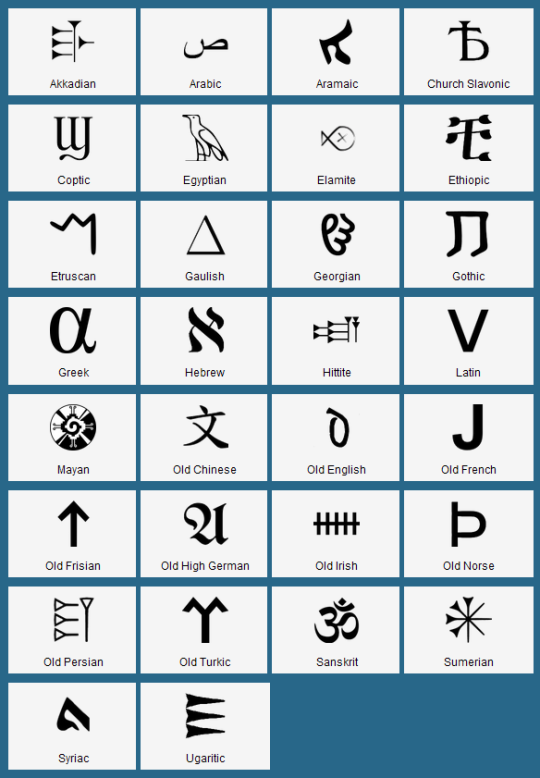
11. Book2
This is a good resource for learners looking for audio files to help them practice their listening. I haven’t used it all too much, but there are many language options, so you’re bound to find a language that you find interesting on here. Price- Free
http://www.goethe-verlag.com/book2/
12. Lang-8
This is a great resource for getting feedback on your writing in your target language. You can post things in your target language, and native speakers of that language will correct it, and you can do the same for other people! It’s very helpful, and is a great resource if you have to write in your target language often. Price- Free

13. Bilinguis
This website offers a few books to read in different languages and is good for comparing different languages of the same book. This makes for good practice for reading in your target language. Price- Free
14. Udemy
There are quite a few languages courses on this website, although several of them cost money. However, there are quite a few courses that are free, and are good for introducing you to your language of choice. Price- Varies depending on the course, however, there are some free ones
https://www.udemy.com/courses/
-Apps- [For this, I can only give the price for iPhones, however, I am relatively sure that these should be the same price in the Android store]
1. Memrise
As mentioned above in the websites section, this app is so amazing for on-the-go language learning, as well as for subjects other than languages! It helps users memorize concepts with “meme” which are pictures that will remind you of what the word or concept means, and it’s such a unique and fun learning experience! It has the feel of using flashcards, but I just love using this app so much. Price- Free
2. Duolingo
Also mentioned in the websites section, this app is great for both learning new words and reviewing words that you have either memorized or have just been exposed to. There are grammar lessons available, translation activities, groups that you can join, and Duolingo makes it fun to learn a language with it’s reward system. Price- Free
3. HelloTalk
This is my absolute FAVORITE app to talk to native speakers of my target language(s). You can become language partners with people, help others with translations, video/voice call, send voice messages, and have as many partners as you want! It’s an absolutely amazing app, and I highly recommend it to everyone! Warning- If you’re a native English speaker looking for a native Chinese speaker, you will get HUNDREDS of requests. It might overwhelm you for a second. Price- Free

4. TuneIn Radio
This is really great for finding stations in your target language, and it helps with practicing both comprehension of spoken language as well as introduces you to awesome music in your target language! Price- Free
5. Tigercards
This app presents words in the form of lists, and gives you vocab so that you can review it. Not the best presentation of words and it doesn’t really offer a memorization technique like Memrise, but it’s still helpful! Price- Free
6. Busuu
This app is a bit like Duolingo, and it offers German, Spanish, Portuguese, French, English, Italian, Russian, Polish, Turkish, Japanese, and Chinese! Price- Free
7. uTalk
This app offers so many different languages, it’s pretty incredible. There are games that you can play, phrasebooks, and several other features. The interface is also really awesome and simple, so it makes learning easier than usual. Definitely a must have. Price- Free

8. Innovative Language
I haven’t used this app much, but I have heard that the lessons on this app are very good, and you can download the lessons so that you can view them offline. Price- Free
9. FlashSticks
This has been super helpful to me, in addition to the games and flashcards that it offers, it also provides an object scanner, which uses your camera to scan objects and then tells you what it’s called in your target language! Price- Free
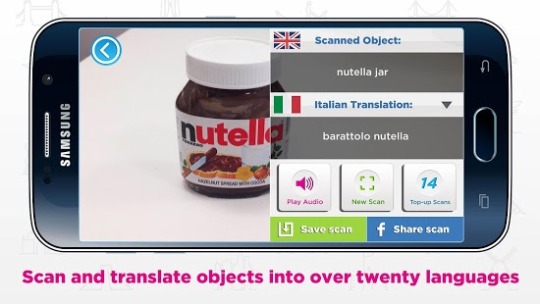
10. Mondly
This has been an awesome resource for me since it’s a bit like Duolingo, only with more unique language options. I’m currently using it to learn Hindi, however, there are tons of other language options. The interface is awesome, and I love using it. Price- Free

11. MindSnacks
This company makes several different language apps, and currently I’m using the Mandarin, Japanese, and French ones. So far, I’ve really enjoyed these apps! Price- Free
12. Spotify
Through Spotify’s “Word” category, there are many different playlists dedicated to language learning, such as for Arabic, Mandarin, French, Spanish, German, Italian, Russian, Portuguese, and Swedish! Price- Free
13. Quizlet
This is more of a diy language learning resource. It is not an inherent language learning resource, however, if you learn best through lists and/or flashcards, then this app allows you to make cards and review vocab that way! I use it all the time for exams! Price- Free
14. FluentU
This is an awesome app for watching videos in your target language, and is really good for learning new words. Price- the app is free, but the service is $15 per month or $120 per year
-Books-
1. Teach Yourself
This series offers an astounding number of languages, and I have found them to be pretty effective in helping me learn languages. I have used the Russian, Arabic, Mandarin, and Irish ones.
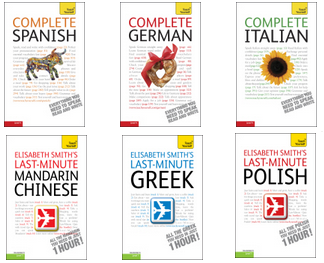
2. Barron’s Grammar and Verb books
I really like the way Barron’s does language books, so far I have used their Japanese grammar book and their Russian verbs book, and I really like the layout of them, especially the grammar book!
3. Dk Visual Bilingual Dictionaries
These are so helpful for me, I’ve been using the Mandarin and Japanese dictionaries for a long time, and they are so comprehensive and awesome!
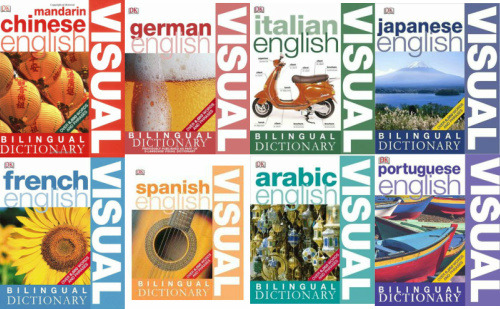
4. Ethnologue
These aren’t language “learning” materials, but rather they help me find new languages to learn. These are more for the linguistic lovers, since they catalog almost every living language in the world in every country, and provide language maps and statistics. There’s really fascinating stuff in those books, so I highly recommend purchasing them.

5. The “Dirty” books
So far, I have only used the Japanese version, however, I really like what the book includes, and it’s great for learning slang in your target language, and things that traditional textbooks wouldn’t teach you.
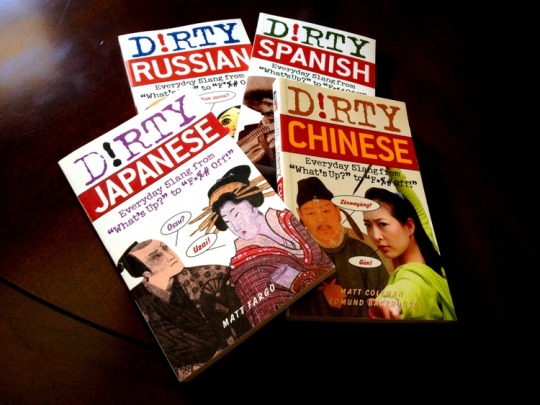
6. Living Language
I LOVE these books so much, I’ve used the Russian, Mandarin, and French ones and I’ve found them very helpful! The layout of these are very nice, and they’re pretty comprehensive.
7. Tuttle books
Tuttle offers several different language books, and they all are very good in my opinion. I have used their books for Arabic, Korean, Mandarin, Japanese, and Hindi.
That’s all that I have right now, but if you all would like more resources than I will definitely make a second one!
To Do!
Spanish
- translate/study a song
- pick 5 verbs and study the conjugations
- watch one video
- write a journal entry
- practice the R sound
- talk with native speakers on Tandem
- 15 mins on duolingo
Japanese
- practice katakana and hiragana
- 15 mins on duolingo
- 15 mins on lingodeer
- start the first chapter of GENKI 1
- talk with natives on Tandem
- watch a video in Japanese or a video about the culture
Send me an ask if you have any Japanese series (not anime) or music recommendations! I’m looking for true crime channels in Spanish or Japanese too. Send me your favorite resources, series, or music!
Tell me about your favorite Puerto Rican youtubers, music or series!
- 1 Month 1 Language
- 1 Month Kanji Challenge
- 14 Day Langblr Challenge
- 30 Day Langblr Challenge
- 34 Hour Langblr Challenge
- 55 Days of Vocabulary Challenge
- 90 Day Vocab Challenge
- 100 Days Challenge For Langblrs
- 100 Hour 40 Day Language Challenge
- A Question A Day Challenge
- Build Your Vocab Challenge
- Composition Challenge
- Fiction Writing Challenge
- Langblr Accent Tag
- Langblr Culture Challenge
- Langblr Music Challenge
- Langblr Vocab List Challenge
- Langblr Diary Challenge
- Langblr News Challenge
- Original Langblr Content Challenge
- Linguistic Diversity Challenge
- Indigenous Language Awareness Challenge
- Vocabulary Challenge
- SpeakingIn20 Langblr Challenge
- A Book In Target Language Challenge
- Brick-By-Brick Language Learning Challenge
- Review Challenge
- Subtitles Challenge
- Summer Language Challenge
- Translating Challenge
Challenges for certain months:
- February Polyglot Challenge
- March Polyglot Challenge
- April Polyglot Challenge
- May Polyglot Challenge
- May Polyglot Challenge
- August Polyglot Challenge
- September Polyglot Challenge
- September: 30 Day Langblr Resource Photo Challenge
- October Polyglot Challenge
- November Polyglot Challenge
- December Polyglot Challenge
- December Polyglot Challenge
- 10 Polyglot Things to Do This September
- 10 Polyglot Things to Do This October
- Langblr NaNoWriMo
i think i might try the monthly challenges. some of them sound quite fun.
Post link
I have only recently heard about this method to improve your listening comprehension alongside your speaking skills.
It’s called shadowing.The concept is that you listen to your target language recording whether it be radio, samples, a podcast…
And you repeat immediately. Without stopping, simultaneously, as if you were an interpreter and had to belt out a translation right away.This helps you to truly sharpen your hearing skills since you have to say everything immediately afterwards. If you find it too had at first, try listening with a transcript.
yes i’m learning russian no i can’t pronounce здравствуйте we exist
Do any fellow native English speakers get really worried about messing up the formal/informal you distinction in most languages?
Like generally I get it, but my brain is like “well what if you meet someone for the first time but they’re you’re age but they may be a year older than you but they might also be younger” like sis calm down
genitive case in russian is funny because it’s like “oh we change бабушка to бабушЕк because having two consonants in a row is hard to pronounce!”
like… it didn’t stop you before



